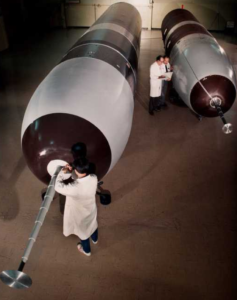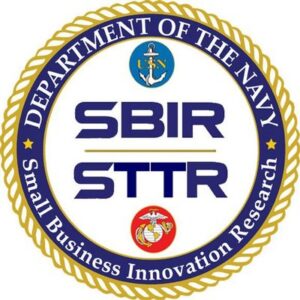How Much Force Can Our Largest MTI Press Generate?
March 9, 2016
MTI Partners with SEDS of UCSD | Aerospace Additive Manufacturing
April 4, 2016The United States Navy has granted Metal Technology (MTI) a contract to develop and demonstrate advanced aerospace additive manufacturing techniques for low-cost manufacturing of refractory metal components for U.S.Navy missile propulsion systems used on the Trident D5 missile system.
The Trident D5 missile system is a submarine-launched ballistic missile (SLBM), built by Lockheed Martin Space Systems and deployed with the U.S. Navy. The missile system was first deployed in March 1990 on U.S. Ohio class submarines with 24 missiles each and is a key element of the U.S. strategic nuclear triad.

While the Trident D5 is expected to remain in service until 2042, the current manufacturing techniques for refractory metal components of the propulsion system are very complex and labor intensive. As part of the SBIR (Small Business Innovation Research) contract, MTI will be working with the Navy to reduce cost and complexity using advanced additive manufacturing sometimes called 3D printing to fabricate refractory metal parts with significant reductions in complexity, cost and lead-time compared to traditional manufacturing methods. MTI is recognized as a leader in aerospace additive manufacturing.
“Phase one of this project is to develop processes and demonstrate the fabrication of simplified, subscale articles using C103 Niobium alloy and provide approaches for fabrication of additional refractory metals/alloys including Molybdenum and Tantalum. We are excited to be part of this very important project and look forward to leveraging our experience working with these materials for over forty years combined with our experience with additive manufacturing to develop some truly innovative solutions.” said Gary Cosmer, Chief Executive Officer for Metal Technology (MTI).
“Key performance requirements for the additively manufactured refractory articles include surviving exposure to greater than 3,200 degree Fahrenheit gaseous environment for 10 minutes at 550 psi, and achieving mechanical properties that meet or exceed the properties derived from traditional processing methods.” said Jason Stitzel, Director Of Engineering for MTI.
Click here to download the full press release.

Aerospace Additive Manufacturing Is Just The Beginning
About Metal Technology (MTI)
With more than forty years of experience applying innovative, proprietary technologies, Metal Technology (MTI) is making possible the use of difficult alloys for a wider range of applications with greater efficiency, versatility, and reliability. Alloys include Tantalum, Niobium, Zirconium, Titanium, Tungsten and Molybdenum. MTI uses specialized deep-draw, spinning, forging, machining, EDM, and additive manufacturing methods to deliver superior products according to your exacting specifications.
Contact us for more information on our additive manufacturing initiatives.

